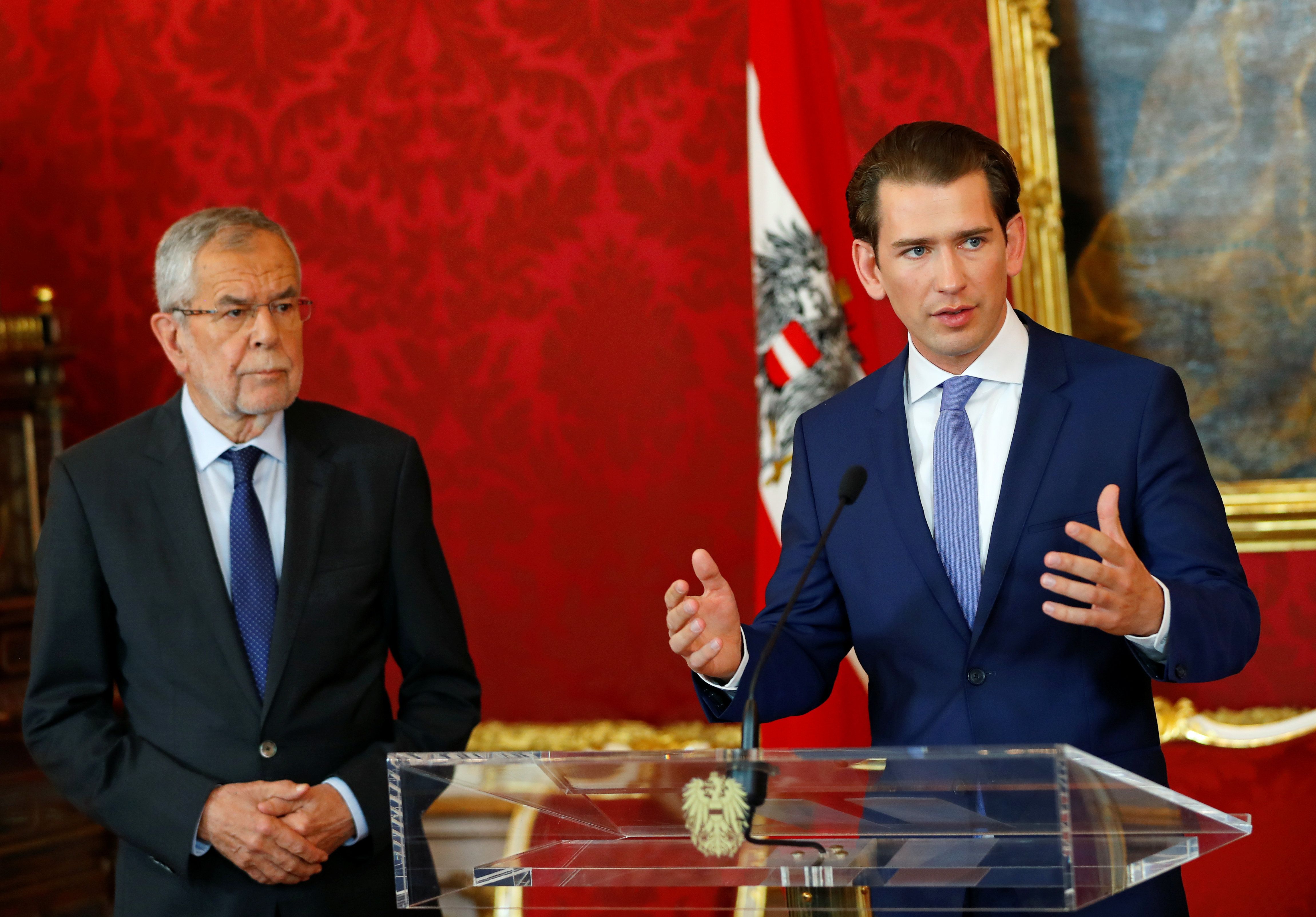May 21, 2019
An Austrian politician got drunk with a Russian woman in Ibiza a few years ago and said some things that have now broken up his country's government.
That's right, over the weekend the German press released a video secretly recorded on the Spanish resort island just before Austria's 2017 elections, in which Heinz-Christian Strache, the leader of the far-right Freedom Party of Austria (FPO), tells a woman posing as the niece of a Kremlin-connected Russian oligarch that if she donates money to his party, she'll get lucrative government contracts.
Amid the fallout from the tape, Mr. Strache blamed it on the booze but resigned from his post as vice chancellor of Austria, and Prime Minister Sebastian Kurz (pictured above) has called for snap elections. After months of scandals surrounding the Freedom Party, Kurz said, "enough is enough."
Enough indeed. Last year, the clean cut 31-year old Kurz led his conservative Austrian People's Party (OVP) to victory in part by tacking to the right on immigration. But in order to govern with a majority, he formed a coalition with the FPO – a Eurosceptic, anti-immigration party that has Nazi roots and, since 2016, a partnership agreement with United Russia, the Kremlin's party of power.
Amid rising sympathy for right-wing ideas in Austria, Kurz's gamble was simple: he would tame the tiger of far-right populism by bringing it in to government.
Instead, the tiger clawed down the drapes.
Beyond numerous scandals that revealed a certain soft spot for Swastikas among the members of the FPO, Kurz's decision to give the party control over Austria's security ministries upended Vienna's ties to other European intelligence services, which worried about sensitive NATO intel getting leaked to Moscow.
The snap election will be held this fall. Whether the episode damages FPO support or helps Sebastian Kurz, we won't know for months. But in the meantime, there are three important lessons:
- Bringing extreme parties into government doesn't necessarily soften them.
- Russia, which seeks a less unified EU, is a very attractive partner for many far-right European parties. (Though we note also that eastern European right-wingers' wariness of their former imperial overlords is a major reason why there's no coherent far-right bloc across Europe.)
- Don't get wasted with "Russians" in Ibiza unless you really, really know what you're doing.
More For You
FILE PHOTO: Canadian Prime Minister Mark Carney and India's Prime Minister Narendra Modi shake hands before posing for a photo during the G7 Leaders' Summit in Kananaskis, in Alberta, Canada, June 17, 2025.
REUTERS/Amber Bracken/File Photo
Indian Prime Minister Narendra Modi and Canadian Prime Minister Mark Carney struck a series of deals during a meeting in New Delhi on Monday, including a 10-year nuclear energy deal under which Canada will provide India with uranium.
Most Popular
The US and Israel have launched a series of strikes against Iran at a moment when the Islamic Regime is at its weakest. Ian Bremmer spoke with Iran expert Karim Sadjadpour in Munich earlier this month to understand the choices the regime and population are facing.
- YouTube
With US forces building up in the Middle East, Trump is betting military pressure will force Iran to bend. Will this turn into a full-scale conflict?
- YouTube
Are we still talking. #PUPPETREGIME
© 2025 GZERO Media. All Rights Reserved | A Eurasia Group media company.
